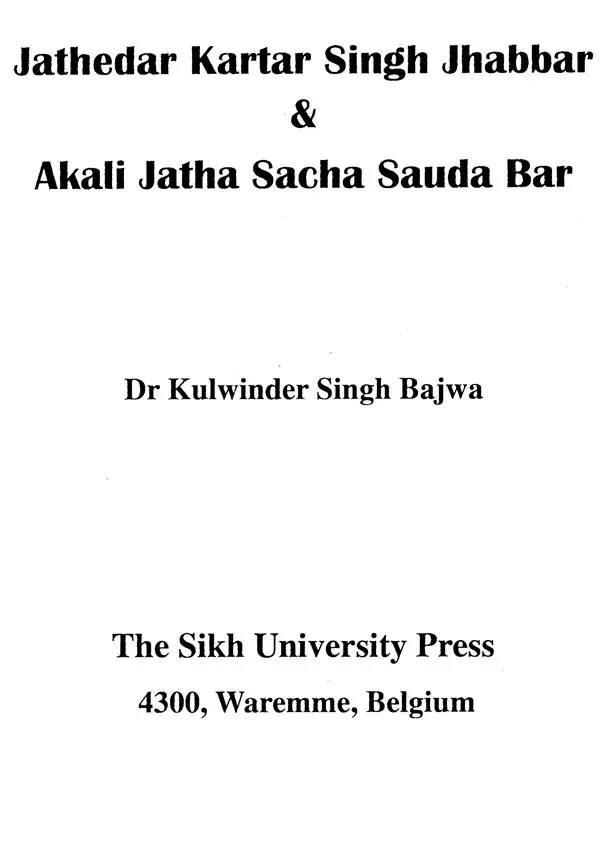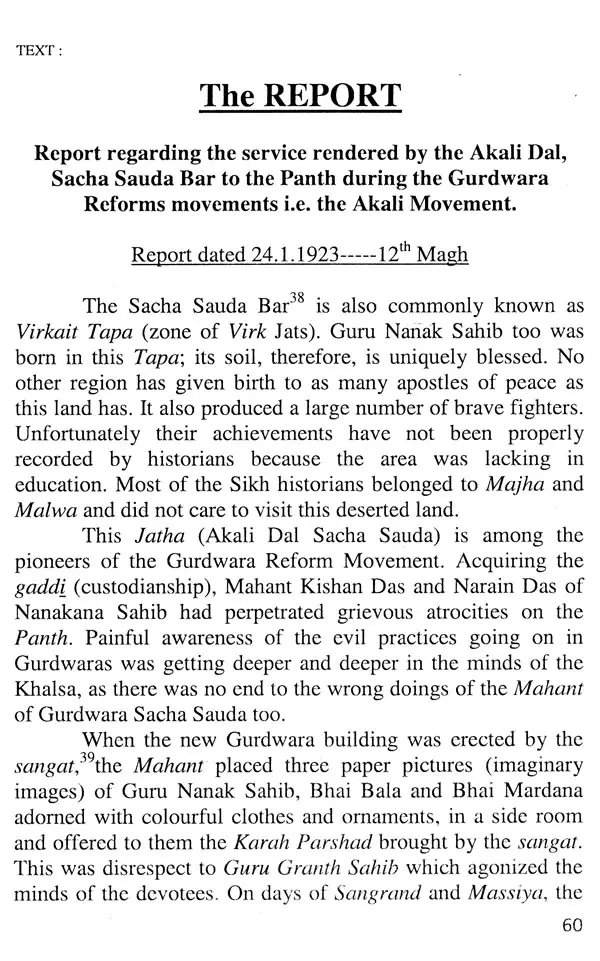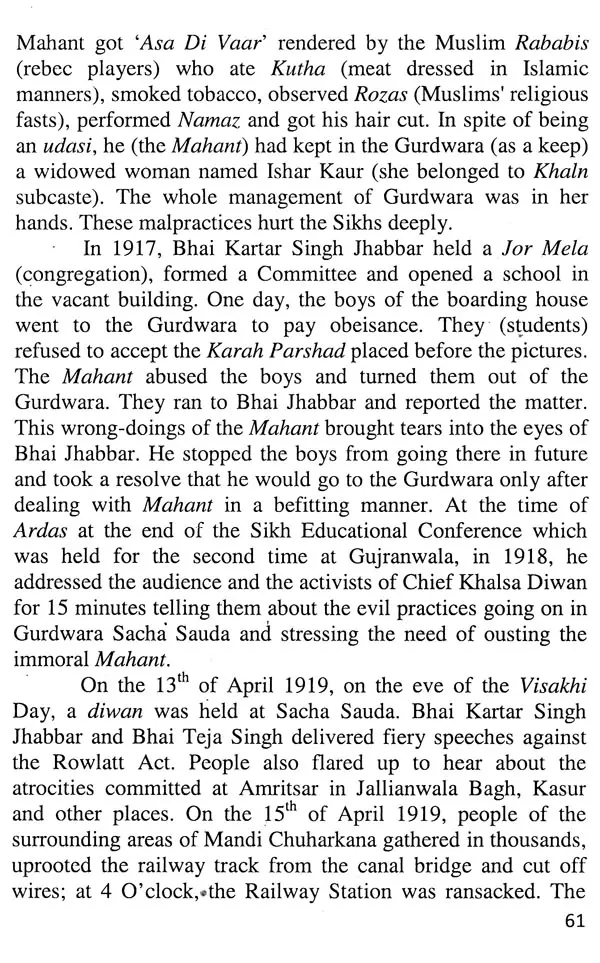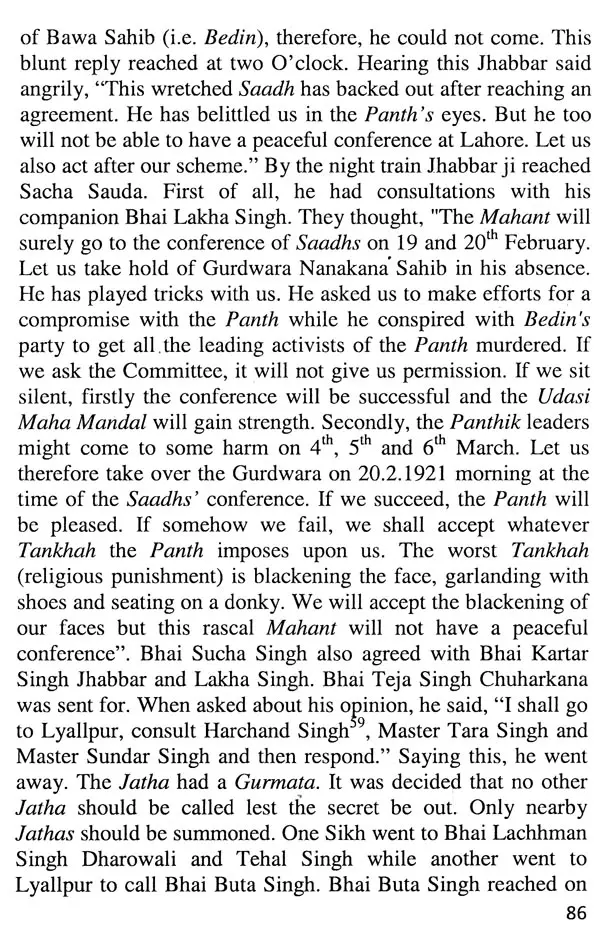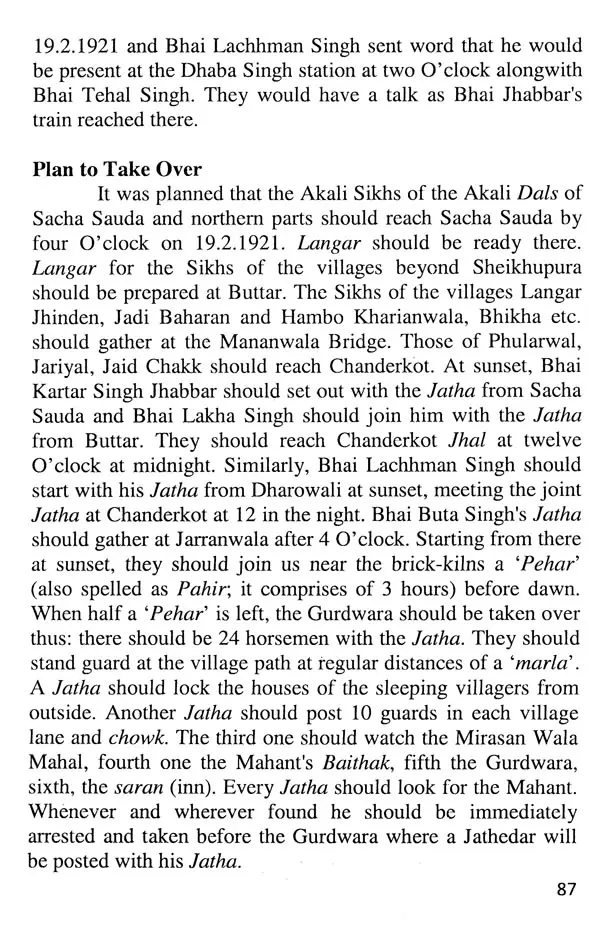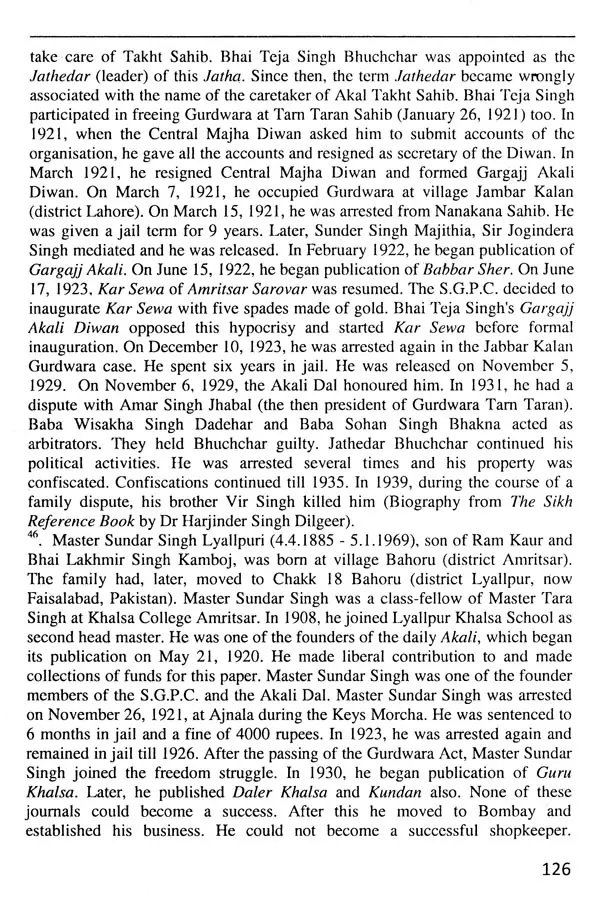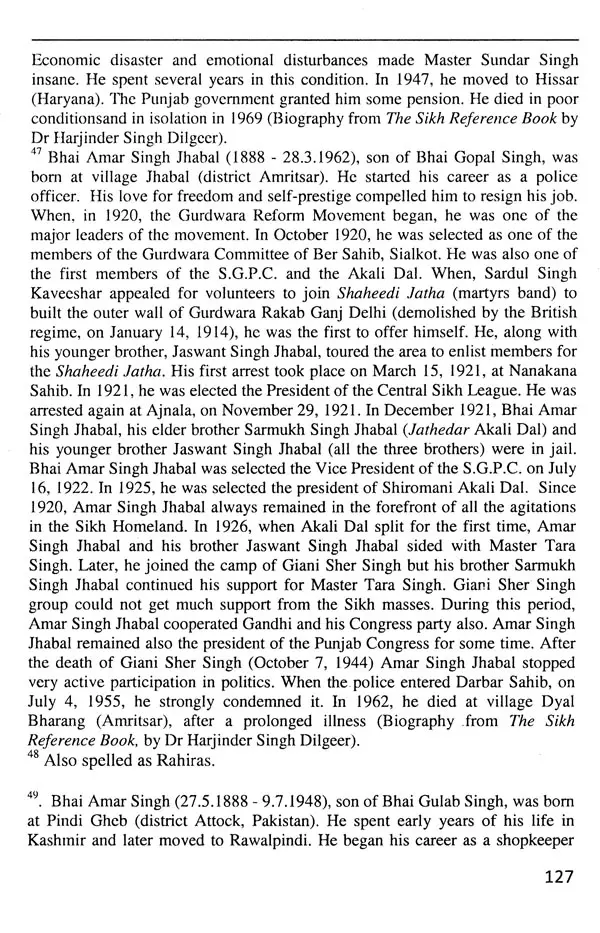About the Author Born on 16-07-1951, Dr. Kulwinder Singh Bajwa is working as Reader in the Department of Punjab Historical Studies, Punjabi University Patiala. He graduated from Baring Union Christian College Batala with Hon's in History. He did post-graduation in History from Guru Nanak Dev University and got his Ph.D. from the same University with his thesis on : Historical Analysis of Early Nineteenth Century European Travel Literature on the Punjab. He served as a Research Associate and Lecturer in the Department of History, Guru Nanak Dev University Amritsar. He was Prof. Incharge of the Sikh History Research Department, Khalsa College Amritsar, more than a decade. He has the credit of participating in nearly hundred National and International conferences and seminars in India and abroad. His publications include more than four dozen research papers and four books: (i)Akali Dal Sacha Sauda Bar(ed.), S.G.P.C. Amritsar 2002, (ii) A Brief History of Khalsa College Amritsar (1892-2003), S.H.R.D. Khalsa College Amritsar, 2003, (iii) Mehma Parkash Vartak (ed.) Singh Brothers, Amritsar 2004. (iv) Essays on Punjab History, Commonwealth, New Delhi, 2009. Currently he is working on (i) Editing of Literature on the Partition of the Punjab, (ii) A Bibliography on the contribution of the Punjabis towards India's struggle for Freedom, (iii) A Chronology of Punjab History, (iv) A Bibliography on Baba Banda Singh Bahadur and (v) Baba Banda Singh Bahadur Sarot Pustak.
Foreword All over the world and throughout the ages, History of Religion has seen the rise of pretenders and false prophets. The multiplicity of gods and goddesses, of the so-called massihas and their successors, and of spurious 'sants' and 'gurus', with pretensions and claims of their followers who preach them up. is a living example of it. This phenomenon is the product of ancient polytheisms with widespread net of exploiting priestly classes whose influence, supported by the vested interests of the bourgeoisie, on the unsuspecting masses has been deep and firm. The consequence has been that the schismatic leaders have, for their own glamour and glory, not only misled their simple from the right paths but have also tried to undermine the fundamentals of their faiths.
Preface The Gurdwara Reform Movement was a unique phenomenon in the Sikh history; from 1920 to 1925, the Sikhs launched a forceful movement to liberate their Gurdwaras from the Mahants, who had been occupying them against the wishes of the Sikh nation; and had been using the Sikhs' offerings for their debauch activities. It is generally conceded that the Movement was started in 1920 but, in fact, it had already begun as early as in 1914. In the Majha, Malwa and Doaba regions in particular, and the whole of the Punjab in general, the Sikh leaders had been making efforts at various places for freedom of the Gurdwaras by forming different organizations. Among these the Akali Dal Sacha Sauda Bar (also known as Khara Sauda Bar) played a very important role. This Jatha had made major contribution in bringing under the Panth's control the Gurdwaras like Babe Di Ber Sialkot, Darbar Sahib, Akal Takht Sahib, Nanakana Sahib and many others. Its leader Jathedar Kartar Singh Jhabbar and countless workers and activists staked their lives and fought in the front row. Many of them spent several years in jails, suffered torture there and got their properties confiscated.
**Contents and Sample Pages**
